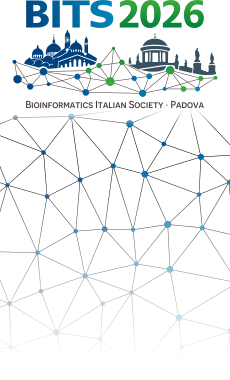Lake Como Workshop and School on Cancer Development and Complexity 2021
Location
Date
24 - 28 May 2021
Deadline
NA
General Chairs
Marco Antoniotti, Charles Cantor, Alex Graudenzi, Bud Mishra, Giulio Pavesi, Giovanni Porta.
Contact
Cancer is a complex disease involving several intertwined phenomena
and events, which collude to unleash the tumor cells inherent
programs to proliferate, live, and move; thus, it is the malfunction of
the biomolecular machinery responsible for the "checks and balances",
normally governed by various complex feedback loops among a population
of various cell types. Breakdown of this machinery leads to
uncontrolled growth of a cell population being selected by
evolutionary pressure that ultimately costs the very survival of the
host.
Understanding the many intricacies of all these interactions at the
subcellular, cellular and tissue levels has greatly benefitted from
the ever-improving applications of algorithmic, statistical and
mathematical modeling tools. Moreover, during the past 15 years, new
measurement technology for gene expression and, more recently, "deep"
genome sequence data, have produced vast amount of data, waiting to
be analyzed to deliver new interpretations. The design of novel "wet"
experiments and appropriately matched algorithmic, statistical and
mathematical modeling tools are expected to become the key to
successful oncological science and practice.
The Workshop and School on Cancer Development and Complexity seeks to
convene researchers from various related disciplines to explore
multiple facets of the challenges posed by cancer a "disease of the
systems." The workshop will provide opportunities for the researchers
to exchange new ideas and viewpoints, forge new collaborations and
train the next generation of young scientists.
Participants are encouraged to present their work in two sessions and
poster presentations that will be held during the workshop.
The program will provide an introduction to both cancer biology and
mathematical and statistical methods used in analyzing the datasets
currently being produced by several laboratories around the world.
Next the program will provide an opportunity to interact with world
renowned cancer and bioinformatics researchers and the chance for
attendees to present their current work. Finally, all the attendees
will receive a certificate of completion of the School.
and events, which collude to unleash the tumor cells inherent
programs to proliferate, live, and move; thus, it is the malfunction of
the biomolecular machinery responsible for the "checks and balances",
normally governed by various complex feedback loops among a population
of various cell types. Breakdown of this machinery leads to
uncontrolled growth of a cell population being selected by
evolutionary pressure that ultimately costs the very survival of the
host.
Understanding the many intricacies of all these interactions at the
subcellular, cellular and tissue levels has greatly benefitted from
the ever-improving applications of algorithmic, statistical and
mathematical modeling tools. Moreover, during the past 15 years, new
measurement technology for gene expression and, more recently, "deep"
genome sequence data, have produced vast amount of data, waiting to
be analyzed to deliver new interpretations. The design of novel "wet"
experiments and appropriately matched algorithmic, statistical and
mathematical modeling tools are expected to become the key to
successful oncological science and practice.
The Workshop and School on Cancer Development and Complexity seeks to
convene researchers from various related disciplines to explore
multiple facets of the challenges posed by cancer a "disease of the
systems." The workshop will provide opportunities for the researchers
to exchange new ideas and viewpoints, forge new collaborations and
train the next generation of young scientists.
Participants are encouraged to present their work in two sessions and
poster presentations that will be held during the workshop.
The program will provide an introduction to both cancer biology and
mathematical and statistical methods used in analyzing the datasets
currently being produced by several laboratories around the world.
Next the program will provide an opportunity to interact with world
renowned cancer and bioinformatics researchers and the chance for
attendees to present their current work. Finally, all the attendees
will receive a certificate of completion of the School.




